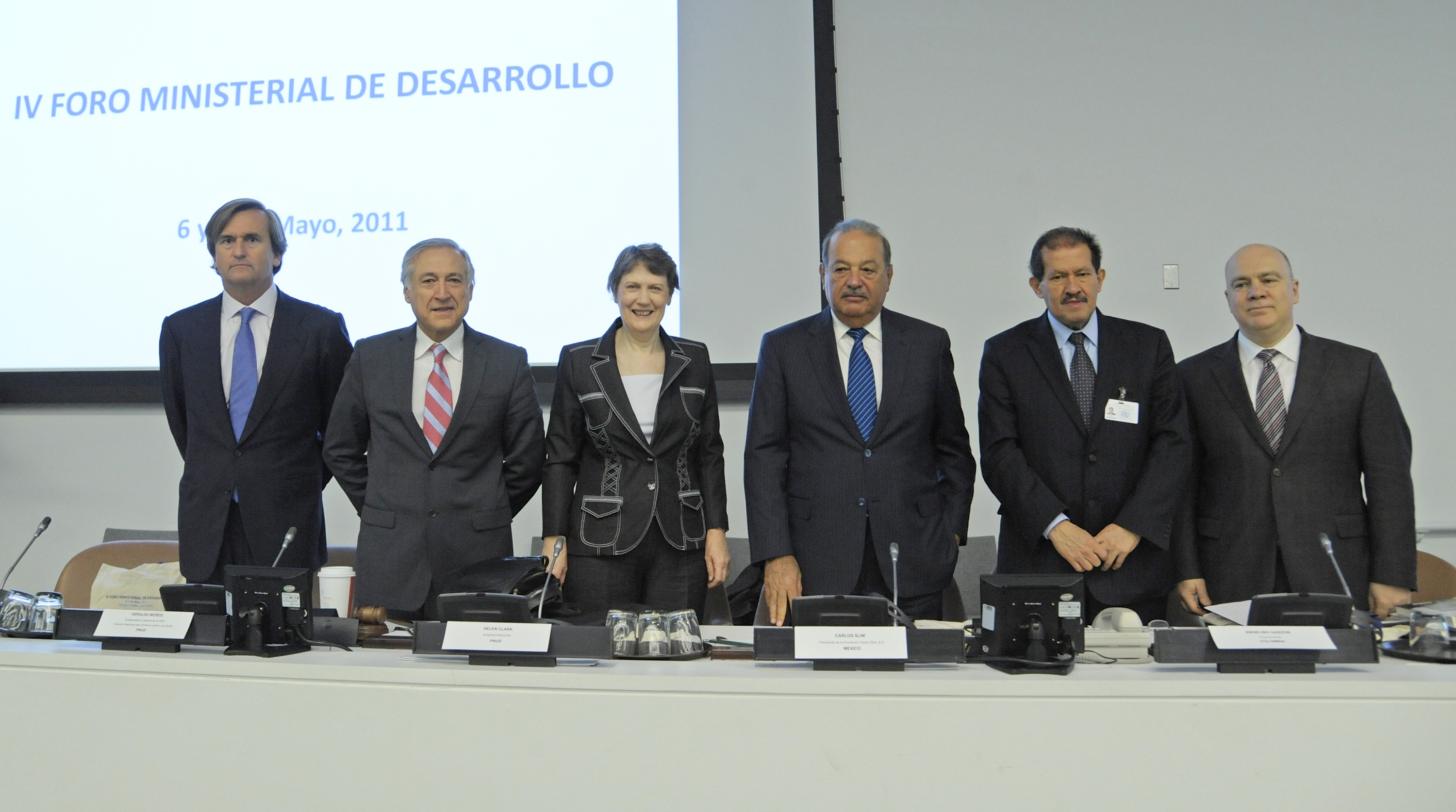2011 Forum: Latin American ministers at the UN discuss social policies to boost opportunities

Heraldo Munoz, Helen Clark and Carlos Slim open the Ministerial Forum for Development in Latin America (Photo: UNDP)
More than 30 ministers and officials responsible for social issues from 16 Latin American countries met today at the United Nations headquarters to debate how governments and the private sector can reduce inequality and boost sustainable development in Latin America.
Representatives of the region's governments are meeting at the Fourth Latin American Ministerial Forum on Development, 6-7 May, to discuss their significant achievements in democratic stability and strong economic growth. Also on the agenda are the shortcomings in the areas of inequality, education and infrastructure which require a more coordinated response from governments and the private sector.
In spite of strong economic growth and advances in tackling poverty, 10 of the 15 most unequal countries in the world are in Latin America, said UNDP Administrator Helen Clark. Our priority must be to take the fight against poverty even further and make inroads into reducing inequality.
Carlos Slim, Mexican businessman and philanthropist, stated that Latin America must consolidate investment in education, digital communications and infrastructure in order to create the conditions for sustainable development. He stressed the importance of developing social policies such as education, for a more competitive region with more opportunities, especially for young people.
Slim, who was invited to be the Forum’s guest speaker, said that Latin America has a great opportunity this decade which it must not waste: governments and the private sector must continue working side by side for sustainable development.
In addition to governments, businesses also have an important part to play in countries, improving social conditions and boosting sustainable development, added the Vice-President of Colombia, Angelino Garzón.
The region leads the world in social programmes that give financial aid to people in poverty conditioned to keeping their children in school and keeping up with vaccines and medical checkups. Such schemes are among the principal means of poverty reduction for 18 countries in the region.
Over 25 million families, 113 million people or 19% of the population have benefited from them. Despite their wide penetration, spending on these schemes represents an average of only 0.4 percent of GDP among the countries of the region, according to the Economic Commission for Latin America and the Caribbean.
Social issues are at the heart of all the electoral campaigns—more than ever, explained Herald Muñoz, Director for Latin America and the Caribbean of the UNDP, today, the voice of the people demands that politicians face current challenges. Not only must they focus on sustaining growth and reducing poverty, they must also focus on inequality in all its forms.”
The Forum is organised annually by the Regional Office for Latin America and the Caribbean of the UNDP with the support of the Spanish International Aid and Development Agency. In previous editions, Nobel Laureates Amartya Sen, Joseph Stiglitz and Muhammad Yunus were invited as guest speakers.

 Locations
Locations